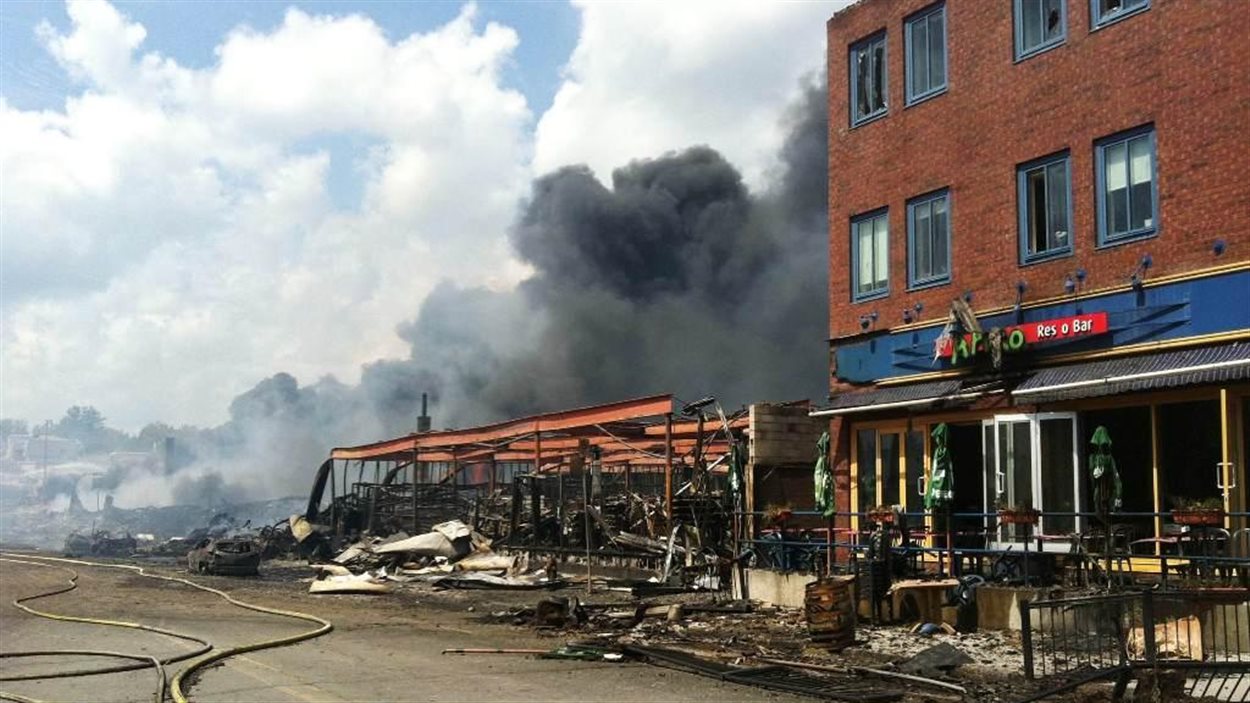Le Globe and Mail publie aujourd'hui dans sa version papier (p. A7) un éditorial dont il est si conscient du risque de retombées négatives qu'il ne l'a même pas mis en ligne dans sa version électronique. Vigile l'offre en exclusivité à ses lecteurs.
The Senate's call for the federal government to undertake an arm's length review of the regulations and standards governing the safe transportation of dangerous goods by rail is wise under the circumstances.
But Ottawa should be wary of another Senate recommendation lion that could curtail the ability of the oil industry to deliver its product to market. The Lac Mégantic disaster notwithstanding, the transport by rail of crude oil in Canada is an extremely safe practice, and there is no justification for taking action that could harm one of the country's major industries.
The Standing Senate Committee on Energy, the Environment and
Natural Resources began looking into the safety of the bulk trans- portation of crude oil and natural gas last fall, well before the July 6 derailment and explosion in Lac Mégantic killed 47 people. The committee was responding even then to safety concerns raised by the increased movement of oil across Canada via train, pipeline and marine tanker. The increase has been particularly dramatic in the rail industry, thanks to a lack of pipeline supply.
In this context, an independent review of existing regulations and standards is a good idea. The public needs to have confidence in the safety systems of rail companies that are transporting dangerous goods through populated areas - a confidence that has been shaken by the Lac Mégantic tragedy.
But a call in the same report for Ottawa, in conjunction with the U.S. Department of Transportation, to consider rapidly phasing out older rail tankers - even at the expense of reducing the capacity to move crude by rail - is something the federal government should not be quick to heed.
Crude oil and natural gas are moved across Canada via pipeline and train tanker with remarkable safety As the report states, 99.9 per cent of the crude oil transported by rail arrives without any spills. The 0.01 per cent chance of a spill or derailment in no way justifies the harm to the economy that limiting the tanker supply might cause.
There have been lessons learned from the Lac Mégantic derailment, and there will be more. Rail companies and federal government both need to ensure that safety regulations, standards and practices match the increased demand. But cutting capacity is not a reasonable option.
Rail Transport Senate Report
How to move oil




























Laissez un commentaire Votre adresse courriel ne sera pas publiée.
Veuillez vous connecter afin de laisser un commentaire.
Aucun commentaire trouvé